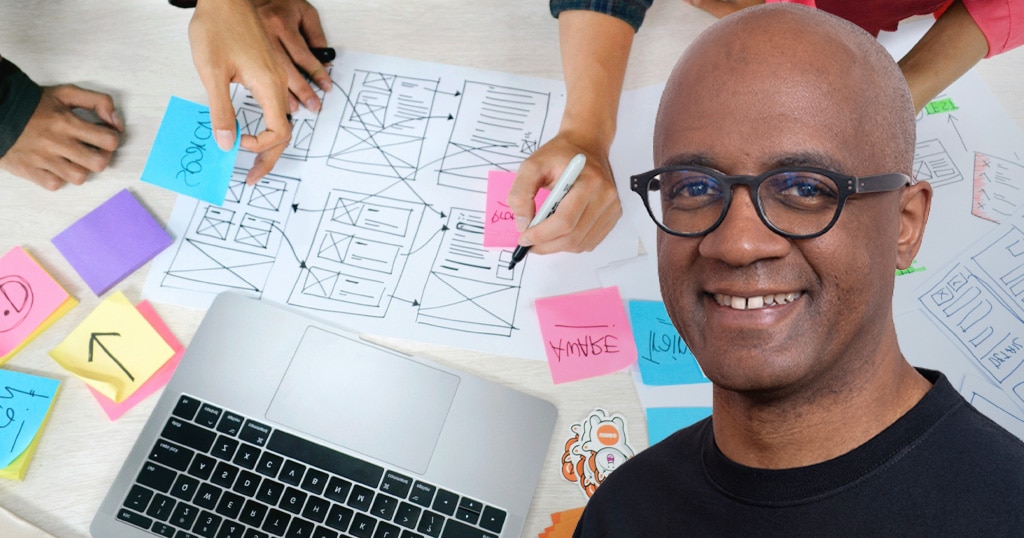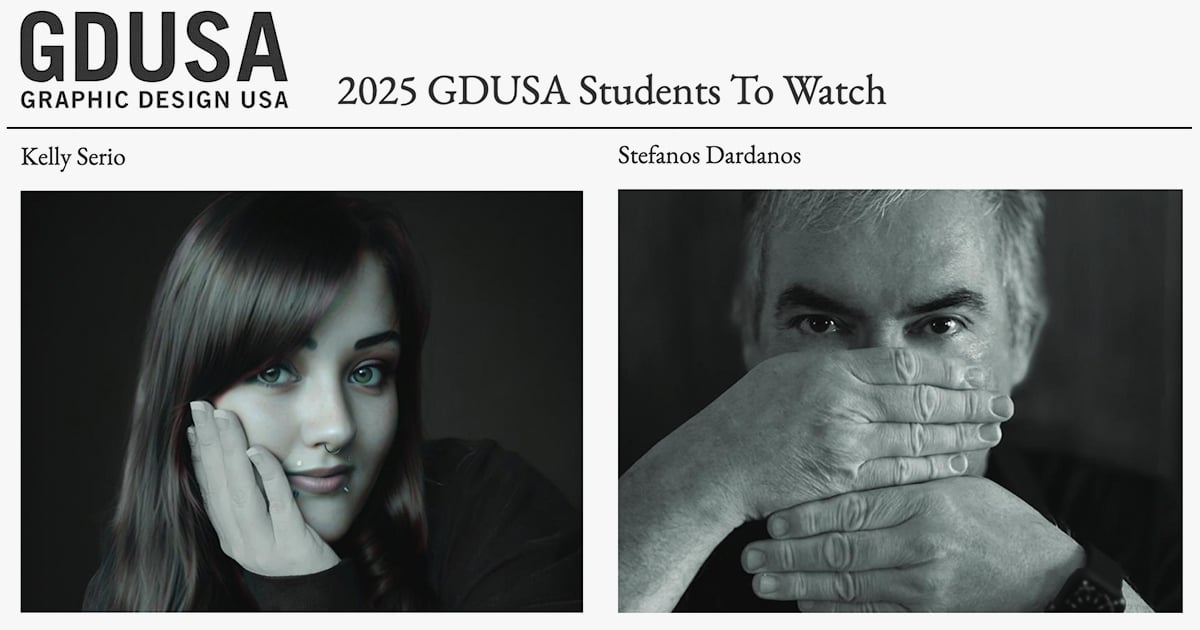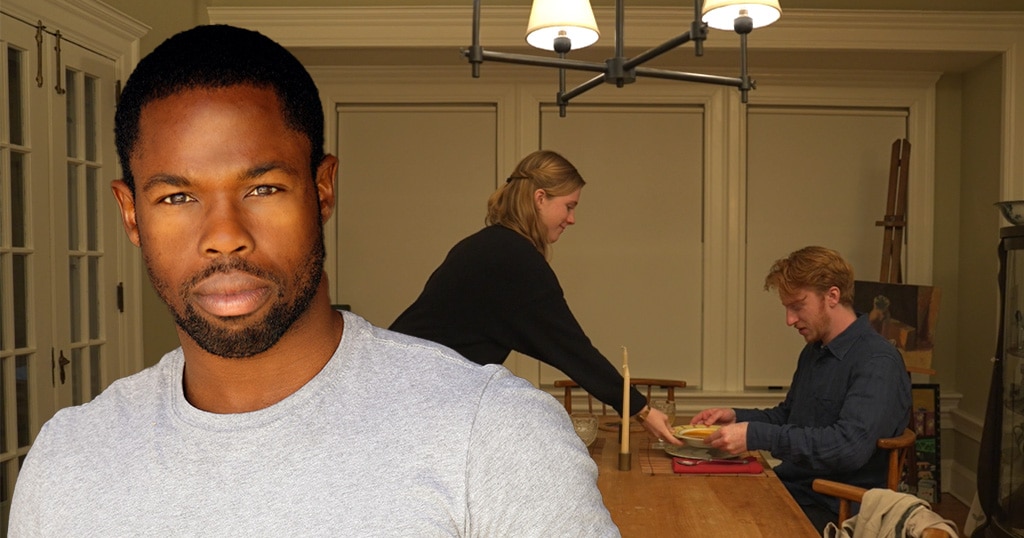Advisory Sessions: How to Stand Out in UX Design

Dr. David A.M. Goldberg is a designer, educator, and critical technologist who came of age in the era of the Commodore 64 and the birth of Hip Hop. David is currently a lead product designer for Disney Streaming’s Inclusive Design team where he works to create innovative customer-centric products, using an approach grounded in the ethical use of metadata, algorithmic transparency, and attending to the authentic experiences and desires of underrepresented folks.
Q: What type(s) of companies are hiring in your industry?
The tech climate is admittedly bleak, and as you likely know, there has been a tremendous downsizing. But when we in the digital entertainment space are hiring, we are hiring at all levels, particularly in the design space, along with engineering (programming) and product management, I see quite a bit of movement at very high level senior and lead positions, while entry-level work is highly competitive.
Q: What advice do you have for applicants regarding the job search and interview process? How can they stand out from the crowd?
If I take a UX designer as a typical job that Disney Technology would hire for, they can stand out from the crowd in the following ways.
First, the candidate must have a strong portfolio that features a good balance of examples that demonstrate a mastery of popular styles and personal innovation. They should be prepared to tell the story of how they got to the point where they are—if possible, they should be able to emphasize non-traditional or unusual opportunities that have either directly inspired their design careers.
The applicant that comes to me with an interesting life stands out from those who are part of the typical pipeline. These differences in life experience should be reflected in their resume by enhancing keywords (applications, job titles, and so on) to highlight the most interesting aspects of their experience.
Long-range aspirations matter too. In an interview, the applicant should be prepared to offer a “dream big” scenario and a sense of where they want to be in 2, 5, and 10 years. Emphasize any experience being a mentee or mentor.
Q: What professional skills, attitudes, and behaviors are important in your industry?
In my experience, employers value clear communication, willingness to work on a team, and an awareness of leadership opportunities. Post pandemic, team members must understand how to work and collaborate remotely. Being able to schedule and manage one’s time and stick to that schedule is key—you must communicate clearly if you will be late. Being able to ask good questions is essential.
Q: What software, design, or technical skills should an applicant be fluent in for your industry?
Strong general design skills and familiarity with design thinking are core, and visual literacy in a wide range of media (games, film, video, TV) is expected. For a UX team, an employee should know Figma (over Photoshop), and be able to use Slack, Zoom or equivalent software, especially as a manager of meetings (knowing how to run a webinar, whiteboards, chat rooms, and recordings.)
Knowledge of Google suite and other collaboration/Whiteboard softwares like FigJam 6 are helpful. Literacy (but not necessarily deep expertise) in Generative AI tools will become more important over time.
Q: Does a graduate need to present a portfolio in order to be considered for a position?
Yes, they need to present an online portfolio, because the majority of interviews will be handled remotely even if the ultimate job offer is for an in-office role.
For a User Experience Design position, portfolios should include examples of interfaces or solutions that the applicant has designed, especially if they were done for a client. If the position is for designing artwork, then examples should demonstrate a clear understanding of commercial communication: branding, identity, and so on.
The number of pieces will vary, depending on the position, and the job posting will typically include that requirement. However, the applicant should be prepared to show 2-3 completed projects that demonstrate the widest range of their skills, and the best of their understanding of how to deliver client specifications.
Q: What are your tips for cover letters, resumes, and portfolios?
Cover letters should be concise. You need to demonstrate that you understand the job you are applying for, using the vocabulary from the job description itself. Also demonstrate that you understand the company you are applying to—what it is known for, for example. Express excitement about for the possibility!
Resumes should be built in LinkedIn and take advantage of all of the platform’s keywords and skill descriptions. Even if they end up customizing the resume offline, LinkedIn provides a kind of “best in class” standard for representing one’s work experience.
When assembling a portfolio, use the Internet to figure out if there are examples of portfolios and discussions of successful ones. Take advantage of any mentors or teachers that might be familiar with the jobs you are going for. Always consider demonstrating a range of examples, but not so divergent as to create the impression that you haven’t learned how to focus or bring a project to completion.
Q: Are professionals in your industry using AI tools? Have you integrated the use of AI within your own and/or professional work?
Yes. They are using machine learning to track usage and behavior on the platform and to create models of future behavior. They are also using machine learning to summarize content for internal use, and clustering it to make related content easier to find in a search scenario.
Personally and experimentally, I have utilized AI. But my company is highly cautious when it comes to using generative AI that they don’t control.
Q: Do you have concerns about the use of AI within your creative industry?
Many of the top design tools (like Figma, Photoshop, and Illustrator) now feature AI support for generating imagery, layouts, etc. Right now these are experimental, but inevitably they will improve to the point where they meet basic to mid-level professional design requirements. This means that new applicants will need to develop strong problem-solving, collaboration, and leadership skills as well as a literacy when it comes to AI so as to distinguish themselves from AI itself.
Q: What should graduates know about the use of AI within your industry?
As much as they can possibly learn because the field tends to advance with surprising “jump cuts,” which is to say that things stay the same for a long time and then suddenly improve and introduce massive changes. We are headed to a point where all major audio-visual media will be producible, extensible, and re-mixable via AI tools… basic mastery of a given design tool and a strong portfolio will still be necessary but simply not be enough because many of these tools will be able to generate imagery to spec that is competitive with what entry level applicants would be able to produce.
Q: Once they have landed a creative job, what’s your advice for starting and maintaining that new job?
Be prepared to learn. Don’t be afraid to “bust silos” and talk to people who are not on your immediate team… corporations and businesses are made of people which means that relationships are the true stuff that holds them together. Always look for opportunities to take the initiative, even if that simply takes the form of asking good questions.
To learn more about the industry pros that make up the Sessions College Advisory Board, visit the Advisory Board page. The Advisory is a team of senior professionals who provide workplace assessment and program review feedback to ensure that our programs keep pace with the requirements of a constantly changing industry.

Sessions Staff is a restless soul who loves to share relevant news and design industry information with current and prospective students. Read more articles by Sessions Staff.
RECENTLY ON CAMPUS

























 What Photoshop’s new AI Tools Mean for the Creative Community
What Photoshop’s new AI Tools Mean for the Creative Community
 Gaining Confidence and Working with Clients
Gaining Confidence and Working with Clients Exploring the Artistry of Filmmaking
Exploring the Artistry of Filmmaking